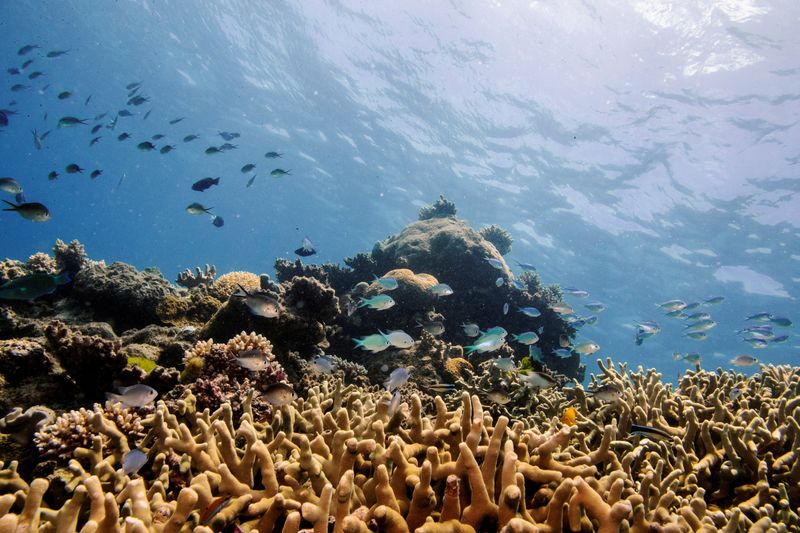Barrier Reef corals will be frozen-scientists
2022.12.19 02:27
[ad_1]

Barrier Reef corals will be frozen-scientists
Budrigannews.com – A novel technique for freezing and storing coral larvae that has been successfully tested by researchers on Australia’s Great Barrier Reef is said to have the potential to aid in the eventual rewilding of reefs that are under threat from climate change.
Due to the destabilizing effects of rising ocean temperatures on delicate ecosystems, scientists are scrambling to safeguard coral reefs. In the past seven years, the Great Barrier Reef has experienced four bleaching events, the most recent of which occurred during a La Nina phenomenon, which typically brings cooler temperatures.
Coral that has been cryogenically frozen can be stored and later reintroduced to the wild, but the current method requires lasers and other sophisticated equipment. A new lightweight “cryomesh” can be made cheaply and better preserves coral, according to scientists.
At the Australian Institute of Marine Sciences (AIMS), researchers used cryomesh to freeze coral larvae in a December lab experiment, the first of its kind with Great Barrier Reef coral. The trial, which occurred during the brief annual spawning window, required the collection of the coral from the reef.
Mary Hagedorn, Senior Research Scientist at AIMS, stated, “If we can secure the biodiversity of coral… then we’ll have tools for the future to really help restore the reefs, and this technology for coral reefs in the future is a real game-changer.”
Previously, the cryomesh was tested on both smaller and larger varieties of Hawaiian coral. The larger variety failed a test.
With larger varieties of Great Barrier Reef coral, trials are continuing.
The preliminaries included researchers from Points, the Smithsonian Public Zoo and Preservation Science Organization, the Incomparable Obstruction Reef establishment and the Taronga Protection Society Australia as a feature of the Reef Reclamation and Variation Program.
A team led by postdoctoral associate Dr. Zongqi Guo and professor John C. Bischov from the College of Science and Engineering at the University of Minnesota came up with the mesh technology, which will help store coral larvae at -196°C (-320.8°F). Nikolas Zuchowicz, a PhD student, conducted the initial testing on corals.
More Peru’s president reshuffles staff due to protests
According to Jonathan Daly of the Taronga Conservation Society Australia, “this new technology that we’ve got will allow us to do that at a scale that can actually help to support some of the aquaculture and restoration interventions.”








